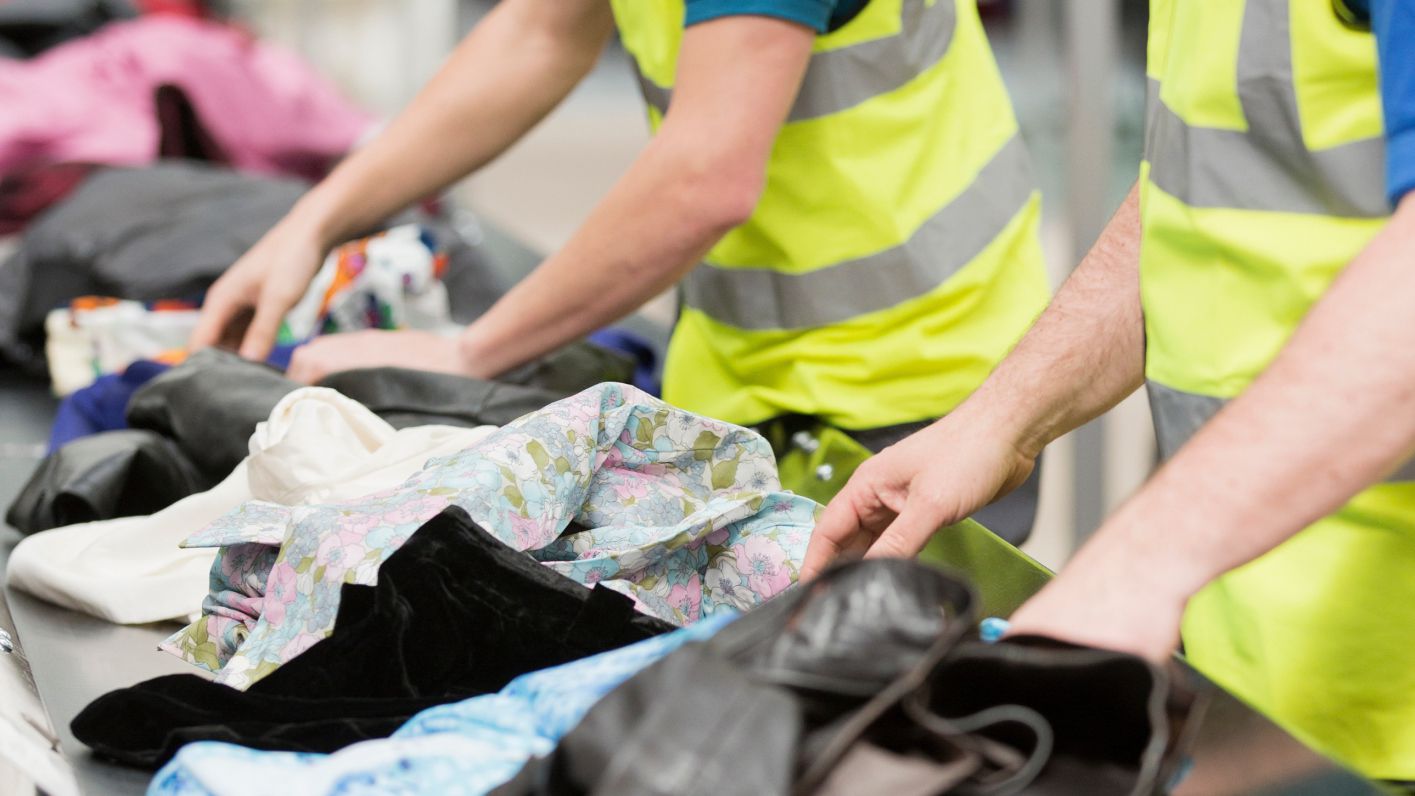Textile EPR: Recycling laws for fashion e-commerce across Europe
Written by
Editorial TeamPublished on

Different recycling laws apply across Europe. France is a pioneering nation for other EU countries in this area. For online retailers in particular, there are many regulations on the recycling of packaging, electrical appliances, and also textiles. German, or other non-French online retailers that ship to end-consumers France must also comply with these regulations.
The French law on combating waste and the circular economy is particularly innovative, because it states, among other things, the ban on unsold consumer goods. From 2022, unsold textiles may no longer be destroyed in France, but must be donated or recycled. The environmental directive is also called the EPR Directive. In this article, you will find out exactly what it is all about and what online retailers have to consider in order to navigate the legal jungle of the EU.
Extended Producer Responsibility for Fashion Online Retailers
EPR stands for “Extended Producer Responsibility”. More precisely, the environmental guideline holds manufacturers responsible for the entire life cycle of their products. The term “producer” may be misleading, as it also includes importers and retailers.
With the EPR legislation, the French government wants to reduce packaging and textile waste and improve recycling rates in the European Union. Anyone responsible for placing packaged products on the market must pay a “eco contribution fee” for the recycling of their packaging waste.
While EPR laws for packaging waste are common across the EU, French was the first European country to introduce similar recycling obligations for textile waste.
More sustainability in the fashion industry
Similar to packaging, manufacturers in France must also take responsibility for textiles that are put into circulation. Previously, many textiles ended up in landfills – most of them new, unsold products. But used textiles are goods and raw materials at the same time. The law aims to fight overproduction in the textile industry.
The law aims to give products a second life cycle through reuse and recycling. The destruction of unsold products is prohibited from 01 January 2022. An exception applies to products made of materials that are harmful to health or to products that can no longer be sustainably reused or recycled.
So-called CLF products are considered to be textiles: Clothing, linen, and footwear. In France, manufacturers or importers of CLF products must either set up their own officially accredited collection and recycling program. Or they are obliged to register with an accredited take-back system.

What do fashion online retailers have to do?
The French non-governmental organisation (NGO) “ReFashion” is the only authorised take-back system. In addition to coordinating the collection, its tasks include sorting the textiles according to a five-level waste hierarchy. The NGO’s efforts lie in making its processes and costs transparent. The income from the take-back system also flows into communication, research and development.
On ReFashion’s “Eco design Platform”, retailers can check how sustainable their textiles are. In addition to information, there is a step-by-step guide for switching to sustainable materials.
The core of ReFashion, however, is that retailers have to register if they sell textiles in France. If less than 5,000 products are sold to France or less than 750,000 euros annual turnover is made in France, traders have to pay a flat fee. This amounts to 75 euros per year (excluding taxes). If these quantities are exceeded, other fees are charged. These result from the quantity of products sold within a year. The exact calculation of the fees depends on the product type and quantity as well as the product size. Furthermore, the fees are reduced if the product materials are sustainable. These so-called “Eco fees” are used for a sustainable textile industry.
Textile EPR on Amazon
Fashion online retailers that sell textiles to France via Amazon’s marketplace will need to show their so-called EPR number from 2022 as proof of compliance. Where do online retailers get the EPR number? After registering with ReFashion, online retailers will receive this EPR number from the recycling scheme. If Amazon sellers do not register, their listings will be banned from sales to France on the platform, as the French waste law can otherwise enforce penalties on Amazon directly.
Textile EPR in Sweden
Sweden is the second country in the European Union to adopt legislation on extended producer responsibility (EPR) for textiles and clothing. The new guidelines will come into force on 01 January 2022, with collection and licensing to begin on 1 January 2024. Swedish lawmakers have calculated that the introduction of the EPR will result in a T-shirt becoming SEK 0.23 (about 0,022 euros) more expensive. Therefore, it says, the new laws “must be complemented by measures whose purpose is not just to assign responsibility for waste management”.
More responsibility for fashion online retailers across Europe
Especially in times of fast fashion, EPR laws are elementary to guarantee sustainability in the industry. The laws on waste prevention in the textile industry in France and Sweden are only the beginning. Extended producer responsibility for textile waste is also to be implemented in the Netherlands from 2023. Bulgaria, Catalonia and the UK are working on similar draft laws. The digital EPR consulting service of ecosistant offers help in navigating the complicated regulations. With ecosistant, you as a fashion online retailer receive step-by-step instructions on how to fulfil your legal responsibility for textiles and packaging waste recycling in every country.

About the author
Lena Bettin is an environmental scientist. She has been working for ecosistant since 2021, researching and writing on various topics related to sustainability, compliance, and e-commerce CSR.


